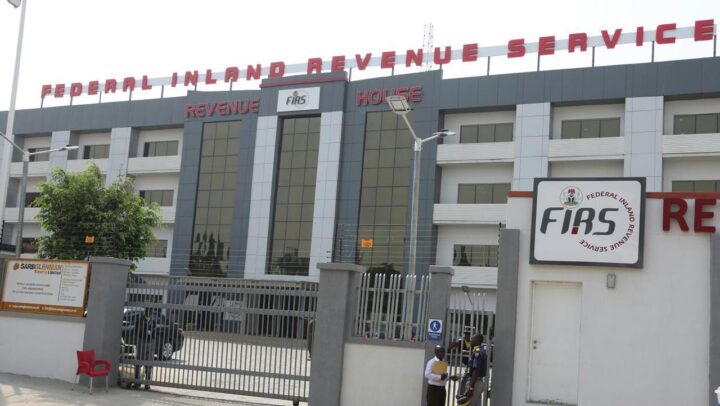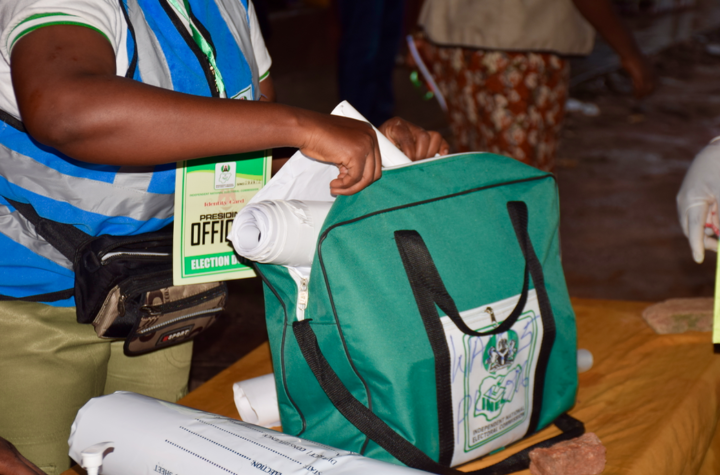I have followed with consternation the dispute between the Federal Inland Revenue Service (FIRS) and MultiChoice Nigeria over alleged tax liabilities in the last two months and the media narratives that emerged from it.
As a rule, my first instinct is to side with the government in matters like this because of what we know about many unwholesome practices by private businesses, blue-chip companies and multinationals to cheat the government of tax revenues through tax evasion and tax avoidance. This has become a serious existential threat to various governments in Africa and undermines the ability of governments to provide basic social services for citizens and meet development goals.
Oxfam, a British-funded international development organisation working in almost all the countries in Africa, in its June 2015 report, ‘Africa: Rising for the Few’, stated that in 2010 alone, Africa was cheated out of $11b in taxes by multinationals. This, it estimated, was six times the amount required to plug the healthcare funding gap in Ebola-affected countries such as Sierra Leone, Liberia, Guinean, Guinea Bissau and the Democratic Republic of Congo.
In the report, Winnie Byanyiwa, Oxfam’s Executive Director, noted that Africa is hemorrhaging billions of dollars because multinationals are cheating African governments out of vital revenues by not paying their fair share in taxes. Byanyiwa went further to say if these tax revenues were invested in education and healthcare, African societies and economies would flourish.
Advertisement
One of the ways transnational companies evade paying the right taxes or even totally avoid them is through a practice called trade mispricing, which involves setting prices for goods or services sold between its subsidiaries to avoid tax. Some also under-declare their sales revenue and use other unwholesome practices. Every year, African countries lose an estimated $50b in tax revenues more than the amount of foreign development aid that comes to the continent according to the Organisation for Economic Cooperation and Development (OECD). While OECD puts tax revenue losses by African governments at $50b, the United Nations Economic Commission for Africa (UNECA) came up with a higher estimate of $100b.
In the light of the above, as an African and a Nigerian whose government is struggling with revenue to meet development challenges, thereby resorting to borrowing to keep the wheel of governance rolling, my natural instinct would be to support any move by the FIRS to use any means necessary to collect due taxes from any company doing business in Nigerian, including MultiChoice. Things, however, must be done without suggesting any ill-motivation on the part of the revenue agency. There are strong whiffs of ill-will around the FIRS’ tango with MultiChoice as well as needless complications of matters.
Common sense would suggest that a tax liability of N1.8 trillion is only faintly possible in a situation in which a business has never paid a kobo in taxes and has operated for some really long time. Could MultiChoice have avoided paying taxes since 1993 when it started operations in Nigeria? Pulling that off will require the skills to walk on water or regularly vanish. I do not think MultiChoice possesses either.
Advertisement
While FIRS and MultiChoice have been at loggerheads over this tax imbroglio, a needless confusion was created since July 2021 when the federal revenue agency appointed some commercial banks as agents to recover the alleged N1.8trillion from bank accounts of MultiChoice Nigeria Limited and MultiChoice Africa. FIRS Chairman, Muhammad Nami, said the decision to appoint the banks as agents and to freeze the accounts was as result of MultiChoice’s refusal to grant FIRS access to its servers for audit to know the actual number of subscribers in Nigeria. FIRS claimed that it established, through its forensic audit, that MultiChoice Nigeria failed to pay almost N2 trillion to the government in Value Added Tax and Company Income Tax. There appears to be a contradiction in the claim of FIRS. The agency cannot claim on the one hand that MultiChoice did not grant access to its servers where it can authenticate the actual number of subscribers and on another hand made a claim of N1.8trillion based on forensic audit. This has “farce’ written all over it. What form did FIRS’ forensic audit take if the agency could not access MultiChoice’s servers?
While FIRS can conveniently argue that extant federal and state tax laws allow tax authorities to use best of judgment in issuing demand notices on individual and corporate taxpayers, it must be borne in mind that rationality should not decline to support the deployment of best judgment. In reality, can Multichoice owe N1.8trillion in taxes? What volume of business did the company do or money made in its almost 28 years of operating in Nigeria that it would have incurred tax liabilities on the scale alleged by the FIRS? Another issue here for consideration on the basis of realistic extrapolation is to ask if FIRS slept on her right for 28years such that the agency allowed a foreign company to deny the government of much-needed revenue. If the latter is the case, it is a huge indictment on the agency. FIRS is guilty of dereliction of duty and it has exhibited gross incompetence. As a matter of fact, the Federal government should set up a probe panel for possible criminal prosecution of those running FIRS since 1993.
In the fight between FIRS and the pay television company, a new frontier was opened on 25 August when Abdullahi Ismaila Ahmad, FIRS spokesperson, said, in a press statement, that a Tax Appeal Tribunal (TAT) in Lagos ordered MultiChoice to, in good faith, deposit the sum of N900billion, which is 50% of the disputed amount with FIRS while the Tribunal adjudicates on the matter. MultiChoice responded that the Tribunal did not make such an order. In its own counter-statement, MultiChoice noted, “the direction issued by the TAT in accordance with paragraph 15(7) of the Fifth Schedule of the FIRS Establishment Act requires Multichoice Nigeria to deposit with FIRS an amount equal to the tax paid by MultiChoice Nigeria in the preceding year of assessment or one half of the disputed tax assessment under appeal, whichever is the lesser amount plus 10%. The lesser amount is the tax paid by Multichoice in the previous assessed year, which is substantially less than the disputed assessment”.
Diligent scrutiny of the TAT ruling indicates that the FIRS is standing on a palsied leg, if any at all. In his intervention, Professor M.T Abdulrazaq, a taxation expert at the Lagos State University Faculty of Law, expressed doubts about the validity of FIRS’ interpretation of the supposed order and even the constitutionality of the TAT to make such order against a party appealing the payment of N900billion.
Advertisement
“To ask a party in a tax dispute to pay such a humongous amount as a security to enable a further hearing is a failure by an administrative tribunal to observe procedural rules that are expressly laid down in the legislative instrument by which its jurisdiction is conferred and a miscarriage of justice from denial of fair hearing,” wrote Abdulrazaq in his well-researched intervention.
In its PWC Tax Alert Report, PriceWaterhouseCoopers, a reputable global accounting, tax and management consultancy, argued that a simple confirmation of the amount paid by MultiChoice in the preceding year of assessment, if any, would have enabled the Tribunal to make a definite order that would not be open to misinterpretation by both parties involved in the dispute. What should, however, not be in dispute according to PWC is the fact that by law, MultiChoice is required to pay the lower of the amounts under the referenced provision of law. In the same Tax Alert report, PWC also reached the conclusion that “the Tribunal’s ruling in this case didn’t provide insights into how they reached the conclusion that a deposit was required based on the three conditions in the law. Therefore, there is room for taxpayers to challenge it if the FIRS attempts to cite this ruling as a precedent to argue that taxpayers must make a mandatory deposit prior to filing an appeal”. This, to me, suggests that the FIRS is a practitioner of computational magic!
In making pronouncements on the matter before it, PWC, therefore, advised the Tribunal to carefully consider the requisite conditions for ordering the statutory deposits, and duly exercise its discretion under the provision in good faith as not doing this may result in indiscriminate assessments and a decline in taxpayers’ confidence in the appeal process.
While the absurdity of FIRS’s demand on MultiChoice rankles, the revenue agency should know the implication of arbitrariness and irrational action for the country’s investment climate. Businesses operating in Nigeria should not have the sense that tax authorities are opportunistic stick-up artists misapplying the law to compel payment of taxes in numbers plucked from the air.
Advertisement
For a country that needs serious inflow of foreign direct investments to stimulate more economic activities and create jobs, FIRS must not send the wrong message that Nigeria is a jungle where foreign investments are not safe. Not too long ago, the National Broadcasting Commission (NBC) changed the broadcasting codes in Nigeria as it affects content and rights ownership in a manner that was considered targeted at MultiChoice. At this point, FIRS needs to avoid creating the impression that there is a deliberate official policy to suffocate MultiChoice. Whatever this tax dispute is all about, FIRS and MultiChoice should sit down together and resolve it amicably in a way that delivers fairness and justice to the Nigerian people, who are the ultimate beneficiaries of all tax revenues and the company too, that must remain in business to continue to create value for all stakeholders
Advertisement
Views expressed by contributors are strictly personal and not of TheCable.







